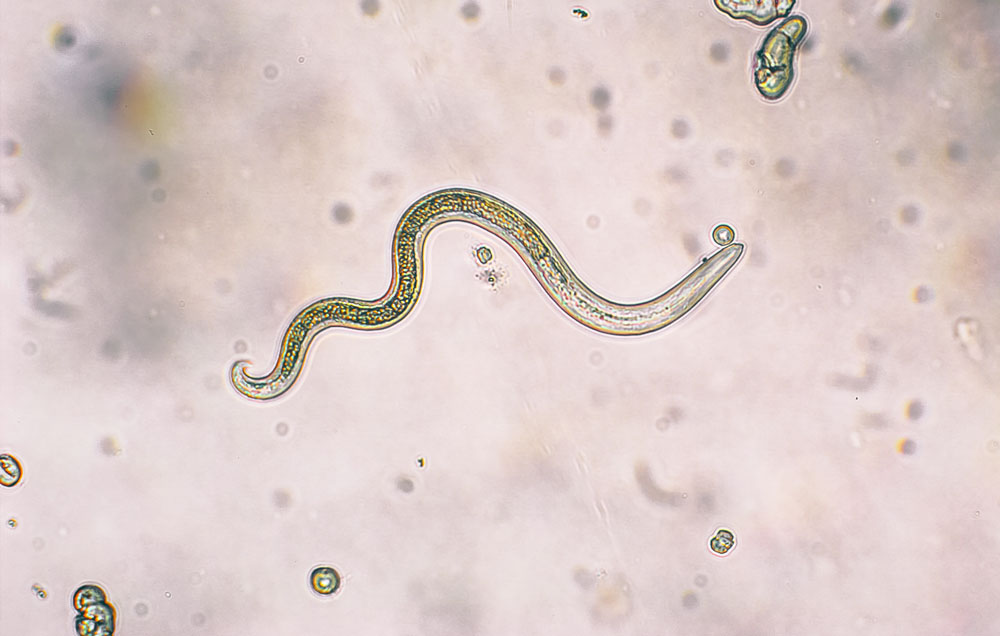Why Worming Isn’t Optional
Worms may be out of sight, but they should never be out of mind. These internal parasites can cause serious illness in dogs and can also be transmitted to humans, posing a risk of blindness or organ damage – particularly in children and immunocompromised adults.
Whether your dog enjoys walks in the British countryside or is relocating across the globe, keeping them worm-free is essential. Worming treatment is often essential to fly your pet abroad. That’s why at PetAir, we are here to advise and support you through every step of relocating your pet – making sure you don’t miss any of the key requirements.
What Are Worms and Why Are They Dangerous?
Dog worms are internal parasites that live in your dog’s intestines, lungs, or heart, feeding off their nutrients and damaging vital organs. Some species are zoonotic, meaning they can infect humans.
Common health impacts in dogs include:
- Weight loss or failure to thrive
- Lethargy and dull coat
- Digestive issues such as vomiting or diarrhoea
- Persistent coughing or respiratory distress
- Internal bleeding and neurological symptoms (particularly from lungworm)
Risks to humans:
- Roundworms can cause organ damage, blindness and seizures
- Tapeworms can form cysts in internal organs
Key point: Even healthy-looking dogs can be infected. Worms often show no obvious symptoms until damage is severe.

How Often Should You Worm Your Dog? (UK Veterinary Guidelines)
See below, how often you should worm your dog depending on their age and other influences:
- Puppies (2-12 weeks) – every 2 weeks
- Puppies (12 weeks – 6 months) – once a month
- Adult dogs – every 3 months
- High-risk dogs/travelling pets – as advised by your vet
Why frequency matters: Worming treatments only kill existing worms. They do not provide ongoing protection, meaning your dog can be re-infected within days.
The Main Types of Dog Worms in the UK
- Roundworms (Toxocara canis)
- Very common in puppies
- Can be transmitted to humans
- Symptoms: bloated stomach, poor coat condition
- Tapeworms
- Spread via fleas or by eating infected prey
- May appear as rice-like segments around the dog’s bottom
- Lungworm
- Increasingly dangerous in the UK
- Transmitted through slugs, snails, or affected water
- Can cause blood clotting disorders and sudden death

Signs Your Dog May Have Worms
- While many dogs show no signs, look out for:
- Scooting or dragging their bottom
- Visible worms in stools
- Coughing or breathing difficulties
- Pot-bellied appearance
- Weight loss or dull coat
If you notice any of these, contact your vet immediately.
How Dogs Catch Worms?
- From infected soil or faeces
- From their mother (before birth or through milk)
- By swallowing fleas carrying tapeworm eggs
- By eating slugs, snails, or prey animals
Tip: Regular flea control is essential to prevent tapeworm infections.
Worming and Pet Travel
If you are travelling internationally with your dog, worming isn’t just recommended – it may be legally required.
Examples of travel requirements:
- EU & Norway: Tapeworm treatment must be given 24–120 hours before entry
- Australia & USA: May require heartworm testing and prevention
- New Zealand: Strict veterinary documentation needed
At PetAir, our team of vets ensures your dog meets the regulations for their destination, with tailored worming protocols and bespoke travel crates to ensure maximum safety and comfort. If you are unsure of your specific pet travel requirements, please give us a call.

How to Prevent Worm Infections
- Follow a regular worming schedule
- Choose vet-prescribed treatments (not just supermarket options)
- Maintain flea control year-round
- Pick up dog waste promptly
- Avoid letting your dog eat slugs, snails, or animal carcasses
- Wash hands after handling pets or soil
Why Choose PetAir for Pet Relocation?
Travelling abroad with your pet involves more than booking flights. Each country has different parasite prevention requirements. PetAir provides:
- Veterinary guidance before travel
- Health certification handled for you
- Stress-free relocation for over 33,000 pets
✈️ Wherever you are locating to, we ensure your pet meets every requirement for a safe and smooth journey.
What next?
Regular worming is one of the simplest ways to protect your dog’s long-term health – and safeguard your family too. Whether your pet stays in the UK or travels internationally, maintaining a consistent worming schedule is essential.
🩺 Need expert travel advice for your pet or worming advice?
📞 Give us a call
💻 Or get a free online quote today






